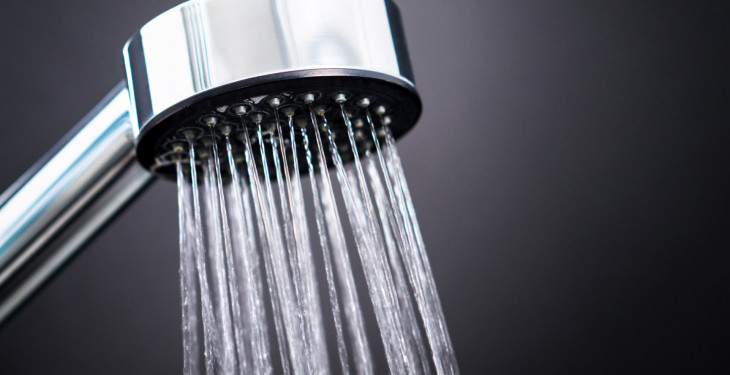

Written by Stephen Day
Gas Safe Engineer
Updated: 12th February, 2026
This Valentine’s Day we want to let you in on a dirty little secret…
Get a new boiler quote, save up to £550 per year (0% APR available).
It’s true, size does matter, especially when it comes to getting you hot this February.
In this blog we’ll be exploring new size regulations for boiler gas pipes, and telling you how if the job needs it, our engineers can lay some pipe, no problem at all.
The sensory rush of hot water dancing down the back of your neck, soothing steam matching the temperature of your skin, the cool sting of the shower glass on the palms of your hands…
Not quite the same if you both have chattering teeth and the water is half frozen.
You may need a thicker pipe to finish the job.

A gas pipe or ‘boiler gas pipe’ is a branch line from the mains building line or ‘gas supply pipe’.
Boiler gas pipes split off from this mains connection and run to the gas powered appliances around the home, i.e. a boiler.
Gas pipes deliver gas from the meter to be used as fuel by the boiler to generate central heating and domestic hot water.
Boiler gas pipes are commonly constructed from copper or alternatively some types of pipework can be constructed of steel, brass or aluminium.
Gas pipes can vary in size (inc. 15, 22, 28 or 35mm) often depending on the distance between the gas meter and the boiler, the boiler’s brand/model and the size of the boiler.
Older properties are often fitted with 15 mm gas pipework, which was commonly sufficient for traditional boilers with lower or more gradual gas demand.
Modern combi boilers, while physically compact, typically require a higher volume of gas over a shorter period of time.
This is because they heat water instantly, rather than storing it in a cylinder.
Delivering hot water on demand places greater pressure on the gas supply, particularly during peak use.
System and regular boilers heat water more gradually and store it in a cylinder.
As a result, they usually place less immediate demand on the gas supply, meaning existing 15 mm pipework can sometimes remain suitable, depending on the installation.
For a combi boiler to operate efficiently and safely, the gas pipework must be correctly sized to deliver sufficient flow and pressure.
In many domestic installations, this assessment results in upgrading the gas supply to 22 mm, but the correct pipe size depends on factors such as boiler output, pipe run length, and overall system design.
Undersized pipework does not usually burst under pressure, but it can restrict gas flow, leading to poor boiler performance, ignition faults, or safety shutdowns.
This is why correct sizing is essential and always confirmed by a Gas Safe engineer during installation.
Any changes to gas pipework must always be carried out by a qualified professional.
All iHeat engineers are Gas Safe registered and assess gas pipe sizing as part of every boiler installation or conversion.
During an installation, engineers calculate whether the existing gas pipework can deliver the required flow and pressure for the chosen boiler.
Where the existing 15 mm pipework is found to be insufficient, it is upgraded to a larger diameter, commonly 22 mm, to meet manufacturer specifications and Gas Safe requirements.
In some installations, particularly where pipe runs are short or boiler outputs are lower, existing pipework may already meet the required standards and not require upgrading.
Decisions are always based on measured pressure and flow, not assumptions.
iHeat’s approach is to upgrade gas pipework only when it is necessary for the boiler to operate safely and efficiently.
This ensures compliance with manufacturer guidance, maintains warranty validity, and avoids unnecessary work while prioritising safety and performance.
Last updated: 12th February, 2026

Written by Stephen Day
Gas Safe Engineer at iHeat
Stephen Day is a Gas Safe registered and FGAS certified engineer with over 20 years of hands-on experience in the heating, cooling, and renewable energy industry, specialising in boiler installations, air conditioning, and heat pump systems.
LinkedInArticles by Stephen Day are reviewed by iHeat’s technical team to ensure accuracy and reliability.

27th February, 2026
Condensing boilers are considered to be some of the most efficient boilers out there on th...
 Read Article
Read Article

26th February, 2026
Vaillant boilers use a variety of parts to ensure efficient operation. This section looks...
 Read Article
Read Article

26th February, 2026
Leaving the heating on low all day might seem like a way to avoid the chill without bursti...
 Read Article
Read Article
No obligation. Takes less than 60 seconds.